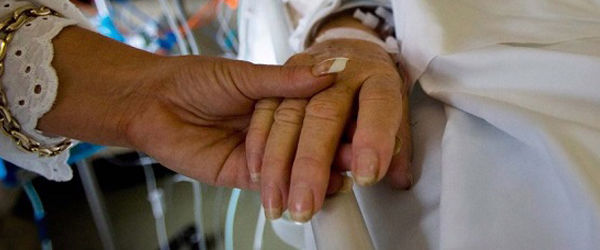Keys to the Council: Unlocking the Teaching of Vatican II, by Richard R. Gaillardetz and Catherine E. Clifford. Liturgical Press (Collegeville, Minn., 2012). 198 pp., $19.95.The 50th anniversary of one of the great religious events of the 20th century, the Second Vatican Council, gives Catholics and all interested in religion an opportunity to review and reflect on the most influential moment in our pilgrim journey. We are now at a stage where most will read the history as they would that of World War II, the fall of European colonialism or the American civil rights movement.For those who did not live through Vatican II or who have not read its 16 documents, "Keys to the Council" is an engaginhttp://www.the-tidings.com/administrator/index.php?option=com_content§ionid=13&task=edit&cid[]=2497g and readable introduction. For those who have been nourished on the council resources, it is a marvelous synthesis and review. For those outside the Catholic communion, it is a privileged, brief enumeration of keys to interpreting this most productive council in Catholic history.While deeply grounded in solid research in Scripture, the Catholic tradition and the history of the council, this is not an academic book. Rather it is a selective exposition of themes embodied in 20 texts representing eight of the council's 16 documents. Each chapter gives the biblical and historical background of the theme, and the background of the debates and decisions of the council. This background is followed by the pastoral and theological content of the theme and its implication for Catholic life.The authors use the organization of the council's work, grounded in the constitutions on revelation and the liturgy, centered on those on the church and the church in the modern world. Related to these core documents are those that relate to the internal life of the church, its mission and its relationships with Catholics of the Eastern churches, fellow Christians, Jews and other non-Christian religions, and freedom in civil society. A useful diagram gives a view of the documents and their relationship to each other at a glance. The themes selected are divided according to the council's program.Internal themes are: the Christian's baptismal incorporation into the death and resurrection of Christ; Christ's sacramental presence in the church; the centrality of liturgical worship for Christian piety and the full participation of all the faithful; a theology of revelation centered in Christ and a dynamic view of tradition; the church understood as sacramental; the role of the Holy Spirit in the church; the centrality of the Eucharist in the theology of the church; the renewed role of the bishop, the collegial relationship among the bishops with the pope among them; and the relationship of the priesthood of all the baptized and the ordained ministry.The next set of themes treats of external relations to others and the world: the church's mission in the world; the role of the laity in this mission; marriage and family; global cultural character of the church's catholicity; religious freedom; Catholic communion with fellow Christians; the hierarchy of truths in Catholic interpretation of the faith; and relations with Judaism and the world's religions.To assist readers, terms that are used from theology and history are defined in boxes throughout the text when they first appear. The book could easily be a guide to parish or ecumenical study, and to the reading of the council texts themselves. They help the first-time reader focus on the specific important ideas and issues introduced into current Catholic faith and practice by the council.At each stage in Christian history the church develops by reaching back into its rich history for resources to renew its life. It also looks to what God is doing in history of each era to determine how to update to meet the signs of the time with ever fresh expressions of the perennial Gospel. This volume presents a useful balance, in assessing the council, between the old and the new, between continuity and renewal, between the competing values alive in the one church blessed by the direction of the Holy Spirit.As with any brief text, the authors have had to be selective. One unfortunate omission, given the worldwide scope of Catholicism and the transitions we are facing in the globalized future, is the minimal attention to the decree on mission. However, the overall view of the church articulated here is hopeful, accurate and a great resource for mission and renewal for years to come.—CNSChristian Schools Brother Jeffrey Gros is resident scholar in Catholic studies at Lewis University in Romeoville, Ill.

